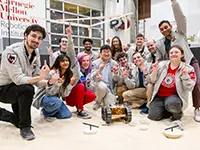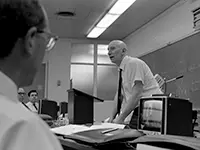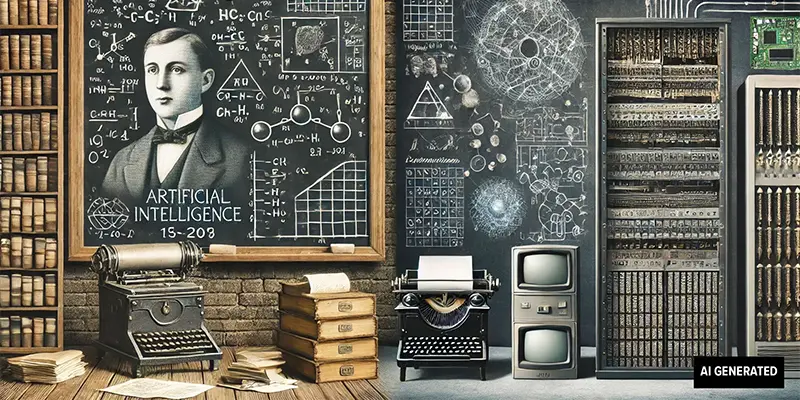Expanding horizons through groundbreaking research and development
Throughout its history, Carnegie Mellon University’s groundbreaking research has challenged and re-defined the limits of what is possible. From robotics firsts to chemical processes to the origins of the universe itself, the incredible breakthroughs in science and technology accomplished by Tartans since 1900 have helped to shape the world we live in today.
 Launching a lunar rover.
Launching a lunar rover.
The Iris Rover and MoonArk, a collaborative sculpture project, launches aboard the Peregrine lunar lander in 2024, aiming to be the first university-developed, interdisciplinary and student-led lunar rover and the first museum on the moon.
 Expanding undergraduate opportunities.
Expanding undergraduate opportunities.
CMU offers the nation's first undergraduate computing courses, taught by professor and programming language pioneer Alan Perlis, in 1958.
 Mastering a TV trivia show.
Mastering a TV trivia show.
Watson — a Question Answering system developed by IBM, CMU and several other universities — wins "Jeopardy!" in 2011, demonstrating that a system could recall knowledge quickly, using sophisticated reasoning, while evaluating its confidence level for each question.
 Engineering protection.
Engineering protection.
Margaret Morrison College alumna Stephanie Kwolek discovered Kevlar in 1965, a material used in body armor and countless other applications that need a very strong, lightweight material.


Going beyond Moneyball.
A data dilemma for the Tartan golf teams led to the birth of the Carnegie Mellon University Sports Analytics Center in 2024, which serves as the home for long-standing initiatives in sports analytics — such as participation in the NFL’s Big Data Bowl — and creates innovative experiences for students who are pursuing careers as data scientists in the world of professional athletics.
Read about how CMU is changing the game


AI is older than you think.
The term "artificial intelligence" didn't enter the popular lexicon until fairly recently. But the concept goes back much further, and two Carnegie Mellon professors were among the first to bring it to life.